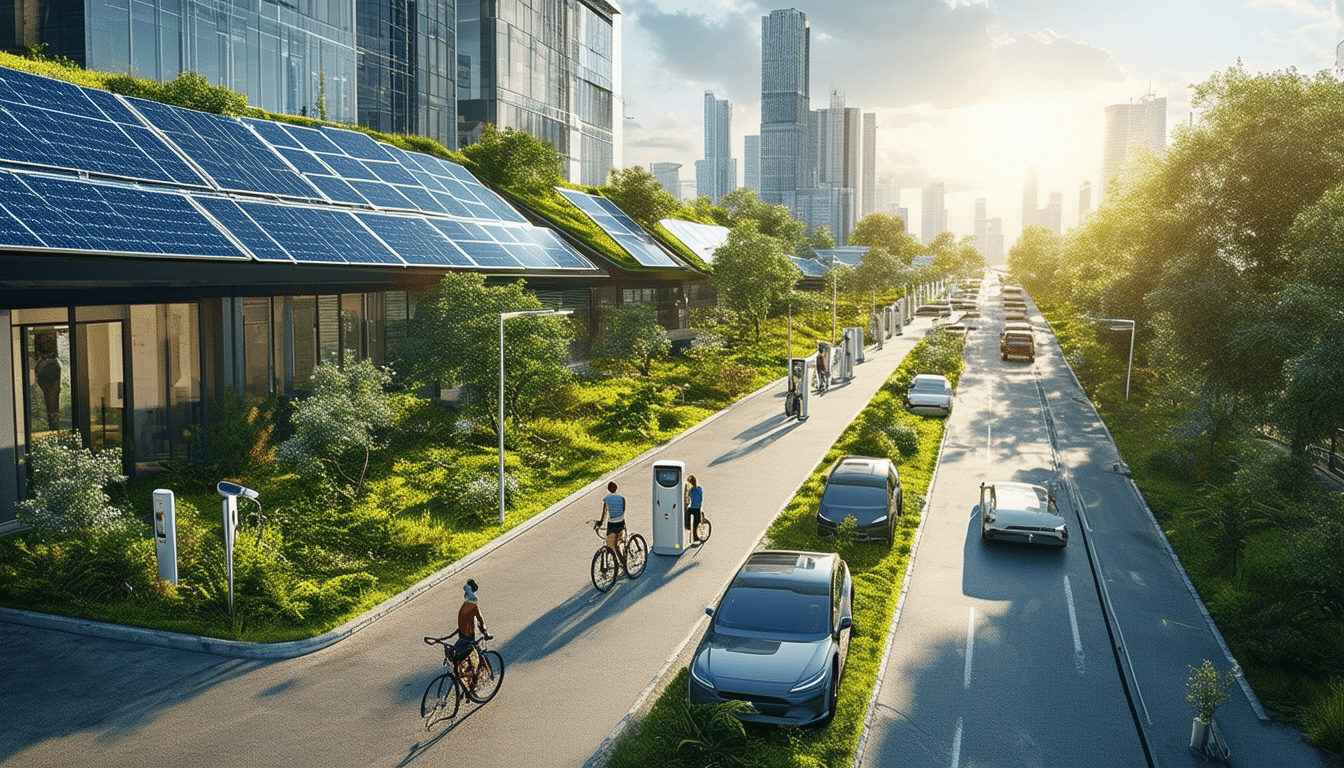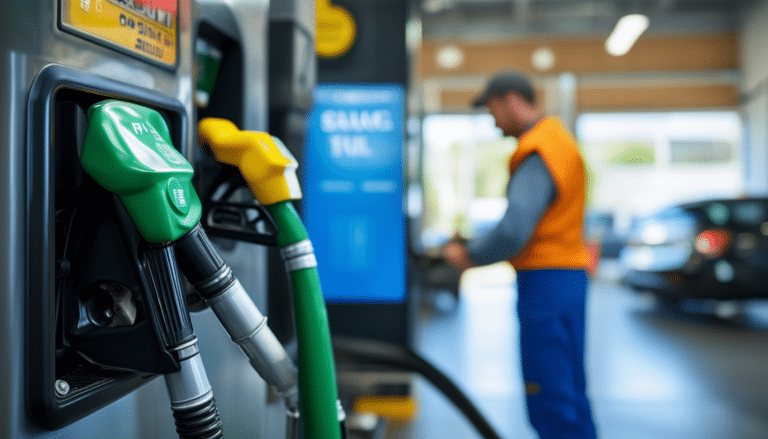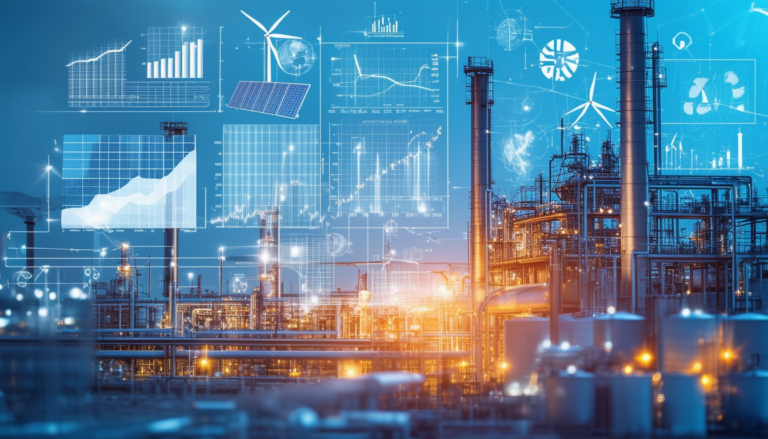Tendencies in energy efficiency for the next year

The year 2024 is shaping up to be a key period for the evolution of energy efficiency. Emerging trends include the rehabilitation of buildings through passive measures, the electrification of thermal uses, and a significant increase in self-generation of energy. With these changes, digitalization and the integration of renewable energies are expected to transform the energy landscape, while photovoltaic self-consumption gains momentum, especially in the retail sector. In this context, being aware of these trends is crucial to adapt and make the most of the opportunities that arise in the field of sustainability and energy efficiency.
The coming year will present itself as a crucial period in the evolution of energy efficiency, with innovations that will impact various sectors. Digitalization, the electrification of thermal uses, the integration of renewable energies, and the rehabilitation of buildings through passive measures are just some of the trends that will set the pace. Expectations for 2024 are not only focused on sustainability but also on the push toward a more efficient and less polluting future.
Digitalization and New Technologies
Digitalization will be one of the main drivers of energy efficiency in 2024. Companies will be adopting advanced technologies that allow for monitoring and optimizing energy consumption. The implementation of energy management systems will help various industries reduce costs and promote a more responsible use of energy. Furthermore, the integration of smart technologies will enable users to manage their consumption in a more effective manner, thereby contributing to sustainability.
Rehabilitation of Buildings
The rehabilitation of buildings will be another prominent trend next year, driven by the need to improve the energy efficiency of existing structures. An increase in the adoption of passive measures, such as the use of thermal insulation and high-efficiency windows, is expected. This will not only reduce energy consumption but also contribute to improving comfort and the quality of the indoor environment.
Electrification of Thermal Uses
The electrification of thermal uses is intended to replace traditional heating systems with cleaner and more efficient technologies. This shift will facilitate the reduction of emissions and promote a more conscious use of energy, aligning with sustainability goals established globally. Heat pumps and electric heating systems will play a fundamental role in this process.
Increase in Self-Generation
One of the most noticeable phenomena will be the increase in self-generation of energy, primarily through renewable sources such as solar and wind. More homes and businesses are expected to install solar panels to generate their own electricity, thereby reducing their dependency on the conventional electrical grid. This trend will not only contribute to sustainability but will also yield significant savings on energy bills.
Integration of Energy Storage Systems
The integration of energy storage systems will be essential to maximize the efficiency of renewable energies. Advanced batteries will allow users to store energy generated during the day for later use, optimizing consumption and reducing the need for energy from the grid. This strategy will help balance supply and demand and minimize energy waste.
Specific Trends for the Retail Sector
The retail sector will also undergo a transformation in its approach to energy efficiency. An increase in photovoltaic self-consumption is anticipated, enabling businesses to reduce their costs by generating their own energy. This will not only decrease their carbon footprint but also enhance their brand image by aligning with sustainable values.
Government Strategies and Community Awareness
Collaboration between the private sector and authorities will be crucial to promote energy efficiency initiatives. Government policies will not only encourage the adoption of clean technologies but will also incentivize communities to participate in energy management. These efforts, along with increased awareness of the importance of sustainability, will create an environment conducive to adopting responsible and efficient practices.
You can read more about other relevant topics related to energy and sustainability at the following links: Future of Energy Efficiency in Transport, Integration of Smart Technologies, Challenges of the Vauxhall Grandland Hybrid, Energy Audit in Your Home, and Connection Between Maintenance and Pollution.
The year 2024 will bring a transformative energy landscape, where energy efficiency will become a central element in achieving sustainable development. Among the most notable trends, a strong focus on the rehabilitation of buildings through passive measures is expected, promoting a more efficient use of energy. This will not only improve the comfort of spaces but also reduce carbon emissions and help achieve climate goals.
The electrification of thermal uses will take a prominent place. By replacing fossil fuels in heating and cooling systems with electricity-based solutions, effective decarbonization will be achieved. Additionally, the increase in self-generation through solar panels or other renewable sources will allow users to produce their own energy, fostering energy independence and reducing costs.
In the field of transport, the integration of smart technologies that optimize energy consumption is anticipated. Energy management systems will become essential to maximize efficiency in mobility, allowing electric and internal combustion vehicles to operate in a more efficient and cleaner manner. This approach will not only benefit the environment but will also offer significant savings to consumers.
Finally, digitalization will be key in the energy transformation of the coming year. Digital platforms will allow for more precise monitoring and control of energy consumption, facilitating the implementation of efficiency strategies. In this way, the energy sector adapts to new demands and challenges, establishing a clear roadmap toward a more sustainable and efficient future.





